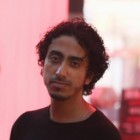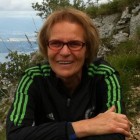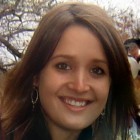Special Focus Session ACC07
Technology-enabled Education Opportunities for Displaced People in Challenging Circumstances
Date Thursday, Dec 7 Time – Room: Charlottenburg 1
In this panel session, we will hear from panelists who are actively engaged in delivering EdTech supported education interventions in ‘challenging circumstances’ – i.e. in the regions and countries where the majority of displaced people are. The 65m displaced people in the world are clustered around four areas of the world: the Middle East (Syria and Iraq); South Asia (Afghanistan); North East Africa (particularly South Sudan); Central Africa (Democratic Republic of Congo, Central African Republic). Apart from displaced people within these countries, refugees from the same countries are primarily in countries that neighbour them: Iran, Jordan, Kenya, Lebanon, Pakistan, Turkey, etc. The panel will offer examples of work currently being undertaken in some of these countries.

Karam Alhamad
Research Specialist (Consultant), Syrian Human Rights Activist | Independent Advocacy and Policy Consultant, Syria
Karam Alhamad is a specialized researcher, analyst, policy advocate, and human rights activist. Native to Syria, Alhamed has extensive knowledge and firsthand experience with development and governance initiatives inside and outside Syria. Since 2015, he has worked in projects with media, research and development supported by entities like USAID/OTI and Harvard University. Because of his previous work in data collection, journalism, and program development, Alhamad provides an in-depth and composite knowledge of Syria, one of the most complicated and heightened crises of our time. His voice provides a sophisticated look into the complicity of Syria, and he has developed a wide-ranging network of activists, community organizations, and local council members on the ground from which he draws information. Alhamad has faced many barriers to education faced by Syrian communities including; inability to document previous education, direct threats of violence and imprisonment.
Links

Harry Haynes
Regional Project Manager, HOPES, British Council, Egypt
Harry Haynes is an experienced content developer for acclaimed digital-first English Learning projects aimed at diverse groups of learners.
He worked as editor of BBC Media Action’s multi-platform English learning project in Bangladesh, BBC Janala, and produced the multi-media learning pack for BBC Learning English’s award-winning English My Way Learning Circles project aimed at isolated immigrant communities in the UK.
Now based in Cairo, Harry is currently project-managing HOPES for the British Council, an EU-funded programme to help Syrians into Higher Education via blended English courses in Egypt, Iraq, Jordan, Lebanon and Turkey. He comes to Berlin seeking new solutions to better to cater to this group of dispersed and vulnerable students and potential students using technology.
Links
http://www.britishcouncil.org.eg/en

Barbara Moser-Mercer
Professor, Director Interpreting Department and InZone, University of Geneva, Switzerland
Barbara Moser-Mercer is Professor and Director of InZone, University of Geneva. Her research has focused on cognitive and cognitive neuro-science aspects of the interpreting process and on the human performance dimension of skill development and digital learning in fragile contexts.
Links

Jacqueline Strecker
Learn Lab Manager, United Nations High Commissioner for Refugees (UNHCR), Switzerland
Jacqueline Strecker has worked with UNHCR since 2012. During this tenure she has managed
UNHCR's educational innovation portfolio, as an Education Technology specialist and as the Manager of the Learn Lab, a joint venture between UNHCR's Education unit and Innovation Service. Prior to joining UNHCR, Strecker was an independent Education and Evaluation consultant, and previously worked with the Canadian Government. Ms. Strecker has an extensive background working as an advisor on the integration of technology into refugee contexts, providing technical and strategic support to the implementation of technologies into all aspects of learning, from a primary to tertiary education. Her practical knowledge of refugee camps is also complemented by a strong theoretical background in design and educational technology.
